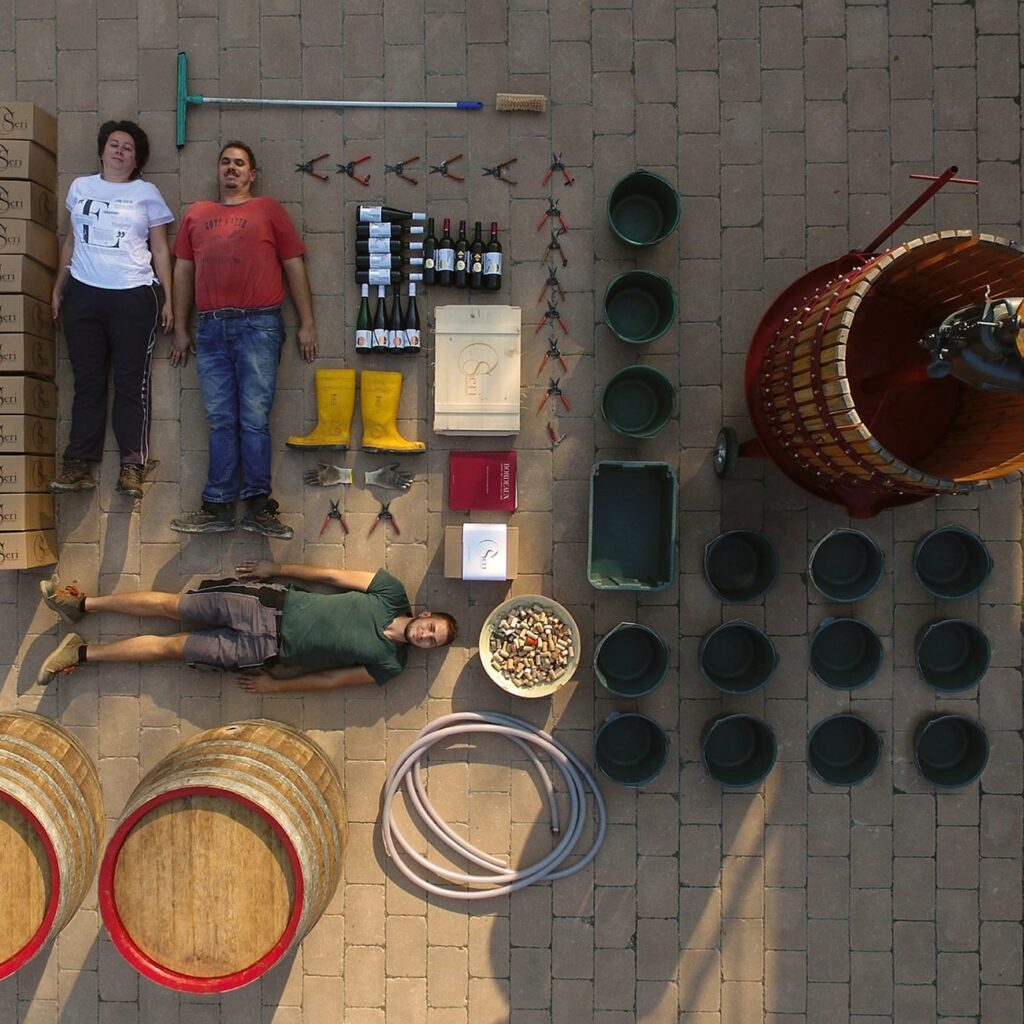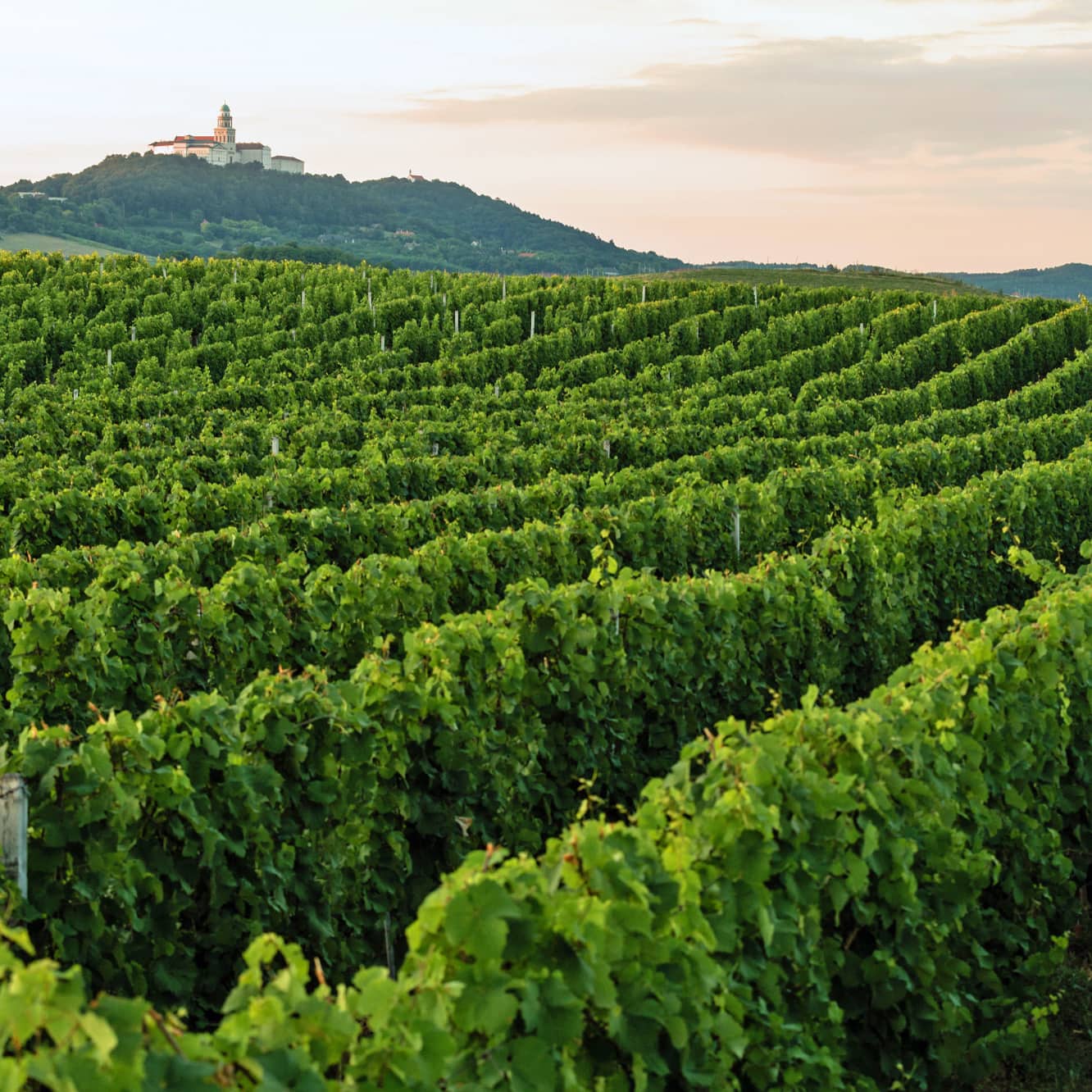ABOUT US
ABOUT US

Dr. Henrik Czurda was born in Budapest, and he escaped from Hungary with his parents and just two suitcases when he was very young. He attended school in Zurich and finished his studies with a PhD in Economics and Applied Computer Science. He worked for top-management strategy consulting companies for twenty-five years, including The Boston Consulting Group, and has served in line functions in various businesses for over ten years. He was a member of top management as a CFO for five years.
As a wine enthusiast, food lover, and passionate cook, he is a lifelong winemaking fan who always dreamed of having his own vineyard. In November 2014, he grabbed an opportunity and acquired a beautiful piece of land in Győrszemere, which had been purchased by his father as a symbolic compensation for their former lands, which had been expropriated from his grandfather. Reflecting on the past, Henrik decided to apply the expertise and sophistication he acquired in his career and his outstanding merits to the winemaking process with three key values in mind: dedication, innovation, and excellence.
In 2015, he returned to school and obtained his winegrowing qualifications, which covered topics including viticulture and plant physiology at the Zürcher Hochschule für Angewandte Wissenschaften in Wädenswil. In the same year, he prepared his vineyard, leveraging the natural world by preparing the soil from wood and bushes and dealing with the many administrative challenges. In 2017, Henrik trained as a winemaker with Andrin Schifferli in Malans, Switzerland, enabling him to actively shape and influence wine production in his Hungarian vineyard. He completed his training as an ‘arany kalászos gazda’ in Hungary in 2021 and is now also a qualified farmer.
His first harvest was in 2018, and the distribution is going very well in Hungary and Switzerland, so he often sells out quickly. Building on this, Henrik expanded his vineyard in 2020 to more than one hectare.
Family Cseri

The Cseri family has stood as one behind Dr. Czurda’s ideas from the beginning. They also own vineyards in Tényő, Győrújbarát, Győrszemeré, and Pázmánd, where they grow wonderful rieslings, sauvignon blancs, pinot blancs, gewürztraminers, merlots, cabernet francs, and blaufränkischen. Cseri Winery produces only quality wines in the unique wine region of Pannonhalma.
The almost 200-year-old renovated building in the Benti vineyard in Nyúl and the sandstone cellar behind it are home to the winery. Part of the structure is several hundred years old, although a new branch was completed in 2023 using traditional construction techniques. Here, father and son Norbert and Barni make their namesake wines without compromise, including CZURDA Riesling.
Wineyard Pannonhama in Hungary

The Pannonhalma wine region is a small area in the northern Transdanubium, in Győr-Moson-Sopron around Pannonhalma.
The region produces white grapes almost exclusively. The vineyards cover about 750 hectares. The soil is half-hard loess and brown earth, and there are some sandy patches. The wine region is situated in the north-northwestern – south-southeastern line of the Pannonhalma-hills. Its climate is average compared with other Hungarian wine regions. Its average annual temperature is about 15°C and the 2.000 sunshine hours it receives per year is considered good. The annual rainfall is about 600 millimetres.
The tradition of viticulture is closely connected with the Pannonhalma Archabbey. Its founding document is the first that writes about Hungarian viticulture, referring to it as a product of tithe. The Pannonhalma letter of King Saint Ladislaus from 1093 mentions 88 vineyards. The Benedictine monks had a great influence in spreading the local viticulture. As a reward, the king put the region’s wine growers under the monks’ authority. According to the document of Albeus, written around 1237, there were 256 wine growing families in the 90 villages that belonged to the Archabbey, and of them, 173 lived in the Pannonhalma hills villages.
The region became unpeopled during the Turkish invasion. The Turkish armies marching to Vienna went through this region. After the Turks were expelled, the vineyards started to flourish again and became a significant way of making a living. The phylloxera epidemic destroyed 80% of the vineyards in the second half of the 19th century.